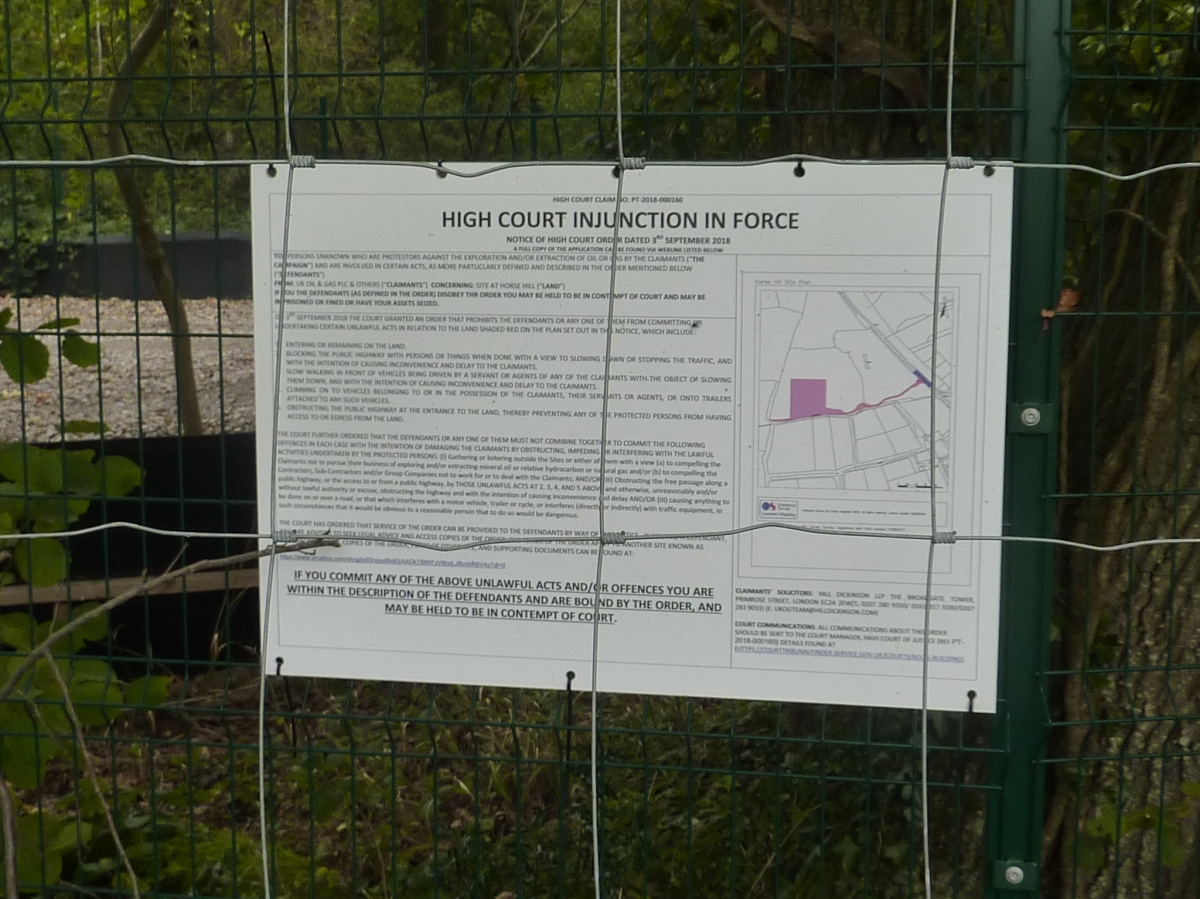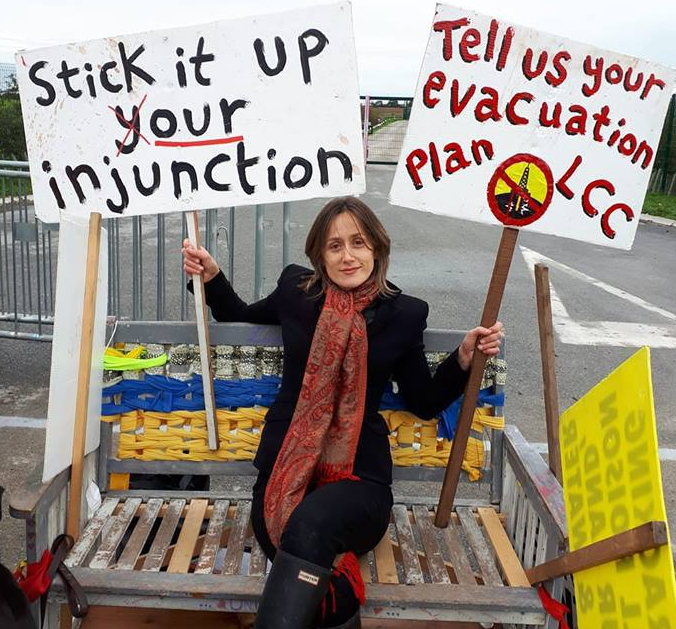The use of anti-protest injunctions in the UK is being challenged by Friends of the Earth at the European Court of Human Rights.

It is the first time an application to challenge this kind of injunction has been lodged with the court in Strasbourg.
Friends of the Earth said there was “deep concern about the rapid and widespread increase” in the use of anti-protest injunctions since 2017.
It said it was bringing the case now following a Supreme Court ruling in November last year.
Opponents of onshore fracking and oil and gas operations have been targeted by injunctions brought by companies, including Ineos, IGas (now Star Energy), Cuadrilla, Angus Energy and UK Oil & Gas.
The injunctions were controversial. Campaigners argued they had a chilling effect on peaceful, lawful protest.
They said injunctions allowed private companies to create their own public order offences, rather than rely on the criminal justice system.
In many cases, the injunction orders were taken out against unknown and unidentifiable defendants, legally described as “persons unknown”, rather than named defendants. This increased the range of people who could be caught by the terms.
People who breached an injunction could be judged to be in contempt of court. The penalty for this, imposed by a judge in a civil court, could be imprisonment, seizure of assets and very high costs. These penalties are often much more stringent than those imposed by criminal courts.
Three campaigners against Cuadrilla’s fracking operation in Lancashire were acquitted at the magistrates court for obstructing the highway. But they were later found to be in contempt of the company’s injunction and received two-year suspended prison sentences, later reduced on appeal.
An opponent of a new pipeline to Heathrow Airport was sentenced to 112 days in prison for breaching an injunction preventing protest.
Friends of the Earth described anti-protest injunctions against “persons unknown” as “fundamentally unfair” and a breach of human rights safeguards under national law and the UK’s international human rights obligations.
The organisation said its appeal to the human rights court followed the supreme court ruling over the use of injunctions targeting environmental protests and the gypsy and traveller communities.
The supreme court imposed significant constraints on the use of injunctions on gypsy and travellers. But it said the constraints did not apply to anti-protest injunctions.
Friends of the Earth said its application would focus on key parts of the European Convention of Human Rights. These are articles 10 and 11 (freedom of expression) and article 6 (right to a fair trial).

Campaigners have successfully overturned parts of protest injunctions brought by oil and gas companies, including Ineos and UK Oil & Gas.
But Friends of the Earth said there were great practical difficulties in bringing a legal challenge
Anti-protest injunctions are often obtained on a ‘without notice’ basis. This means that an oil or gas company did not need to notify anyone who might want to oppose the injunction. The judge asked to grant the injunction will often only hear arguments in favour of the injunction being granted.
In July 2017, Ineos was granted an injunction against protests at potential fracking sites, including one where it had not applied for planning permission or informed local people of its proposals.
Fighting injunctions can also be very expensive and people can be priced out of court or risk liability for high costs.
Friends of the Earth lawyer, Katie de Kauwe, said:
“We believe that the increasing use of anti-protest injunctions breach our fundamental rights and stifle peaceful, lawful protest.
“Protest through history has been a powerful means to achieve positive change in this country and throughout the world, from the women’s suffrage movement to the dismantling of apartheid in South Africa.
“With the climate crisis spiralling out of control, it’s disturbing that both private companies and public authorities are putting so much effort into preventing people from sounding the alarm, instead of intensifying efforts to build a cleaner future.
“The European Convention of Human Rights is crucial to protecting the space for citizens to express dissent in a democratic society. We’ve done everything we can to uphold these rights in our domestic courts, so now we’re taking this issue to the European Court of Human Rights.”
Friends of the Earth will be represented by lawyers at Hausfeld and Garden Court Chambers. Stephanie Harrison KC, at Garden Court Chambers, said:
“Friends of the Earth must be commended for their enduring commitment to defending the right to protest as a cornerstone of our democracy. Peaceful protest is vital to the success of environmental campaigning given the obvious need to continue to press the government and corporations to take the urgent action needed to protect the planet and local communities under threat in the UK and across the world from the climate crisis.”
DrillOrDrop has closed the comments section on this and future articles. We are doing this because of the risk of liability for copyright infringement in comments. We still want to hear about your reaction to DrillOrDrop articles. You can contact us by clicking here.
